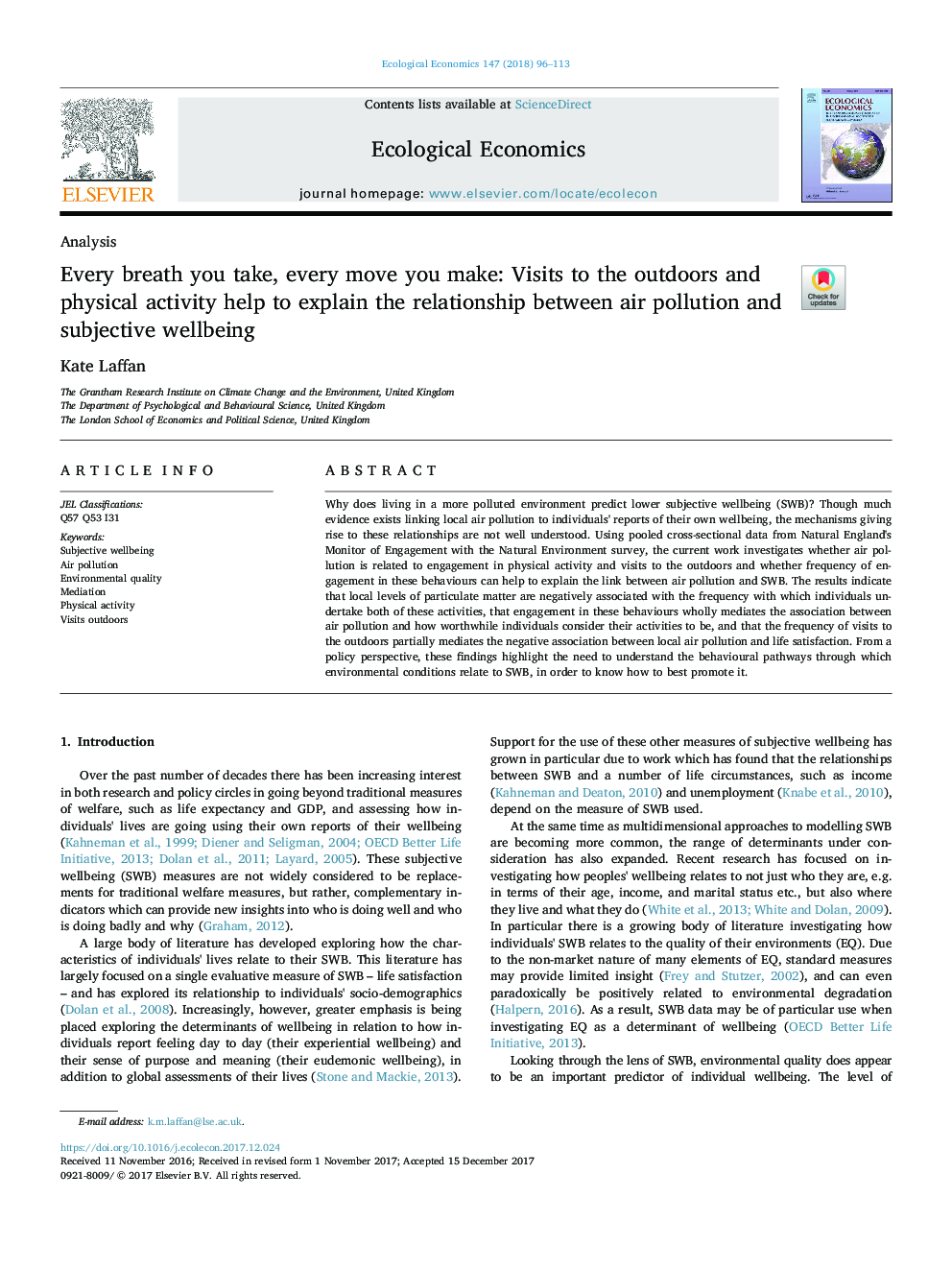| Article ID | Journal | Published Year | Pages | File Type |
|---|---|---|---|---|
| 7344310 | Ecological Economics | 2018 | 18 Pages |
Abstract
Why does living in a more polluted environment predict lower subjective wellbeing (SWB)? Though much evidence exists linking local air pollution to individuals' reports of their own wellbeing, the mechanisms giving rise to these relationships are not well understood. Using pooled cross-sectional data from Natural England's Monitor of Engagement with the Natural Environment survey, the current work investigates whether air pollution is related to engagement in physical activity and visits to the outdoors and whether frequency of engagement in these behaviours can help to explain the link between air pollution and SWB. The results indicate that local levels of particulate matter are negatively associated with the frequency with which individuals undertake both of these activities, that engagement in these behaviours wholly mediates the association between air pollution and how worthwhile individuals consider their activities to be, and that the frequency of visits to the outdoors partially mediates the negative association between local air pollution and life satisfaction. From a policy perspective, these findings highlight the need to understand the behavioural pathways through which environmental conditions relate to SWB, in order to know how to best promote it.
Related Topics
Life Sciences
Agricultural and Biological Sciences
Ecology, Evolution, Behavior and Systematics
Authors
Kate Laffan,
